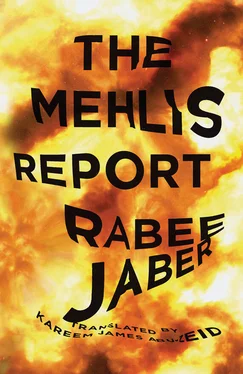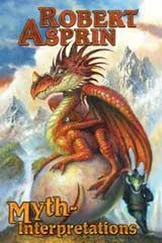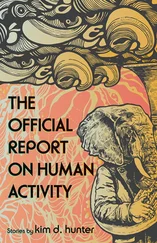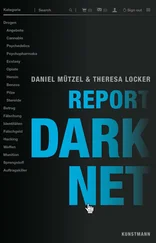“He should read them all over again,” he replies. “The first reading doesn’t count. It’s the second reading that’s really the first. On the second go, you start to understand what you’re reading. From that point onward, in the subsequent readings that come year after year, decade after decade, you begin to really see what you’re reading. At first you see only words. The images come with time. That book I gave you two months ago: you’ll go back to it in two years, and you won’t believe you’ve ever seen it before.”
Johannes’s words annoy me, and don’t. I look at the sinews of his neck while he’s speaking, and I gradually relax. I know he’s not a liar. His words are sound. There’s a certain passion to them. He doesn’t speak much. He doesn’t like talking. They say he used to write as well. Not here, but in the land of the living. He doesn’t write here. There’s not a single page in his box in the archive. Each of us has our own box in the archive. Everything I write but don’t want to keep is taken over there. What I want to keep is left with me. It’s left with me for a fixed period of time, then it too is taken over there. My box is almost full. I’ll be given another one. The overseer’s box is empty. There are only a few empty boxes in the archive. All of us write. Writing’s like the plague. Except none of the elderly write. And there are a few younger people who don’t write either.
I want to read everything Johannes has read, but that will take a long time. I don’t know when he came here, but I know it was a long time ago. How did he die? I don’t know. There are no visible marks on his body. Maybe he died in his sleep, although he looks like he’s just 20 or 30 years old. I don’t know how long a life he had — his childlike face deceives the eye. Maybe he died when he was 40.
I watch Saman watching TV. Why doesn’t he get up and walk to the balcony and look at the moon? The moon is almost full, almost complete, in the Beirut sky. It’s Saturday night, and tomorrow will be Sunday. Rain will fall on the city tomorrow afternoon. And after the rain the sky will clear and the moon will come out. At three in the morning a mountain of white clouds will appear in the sky of Beirut. No, not a mountain — a whole range of mountains. The white clouds will flow in as the moon rises above them. But no one looks at the moon. The people are asleep. The city’s asleep. They stay up late in restaurants and nightclubs, in their streets and their homes. They stay up until they grow tired, then hurl themselves into their beds. After all the eating and drinking and smoking, they sink into deep sleep. I can only see one solitary woman out on a balcony — the moon woke her up. Her hand is on her stomach as she looks at the full moon. She’s wearing a blue nightgown. Women know the moon better than men do: the moon acts on their bodies. Energy flows through the woman’s belly as she looks at the moon and hears a man in one of the houses coughing in his sleep. Some windows are open, even though it rained earlier that evening. The weather is refreshing, but not cold. She hears a bed creak, and a dog bark.
But it’s still Saturday. We haven’t reached Sunday yet. I look at Saman in front of the TV and think: Doesn’t that man ever read? When he does read, it’s only ever the paper, or the subtitles on the TV screen. Why doesn’t he really read? My sister Mary used to shove books in front of his face in our school days and say, Read this, this is good, it’s got a great story and some great pictures too. But he doesn’t read. He says he gets drowsy and falls asleep whenever he opens up a book.
He thought he wanted to read something as he was leaving that woman’s house in the neighborhood overlooking the landfill they call “Mount Burj Hammoud.” He was tired; his chest felt jagged from the lack of sleep; and his head was pounding from the heat and humidity. He thought he wanted to read something right then. The thought was out of character, so unlikely that he asked himself — as he was getting in his car bathed in the streetlamps’ orange light — where the feeling had come from: “ I want to read a book?” It was such a foreign notion that he could feel himself splitting from his body. Had I, with my mental prodding in the sleeping city’s darkness, planted that idea from over here, from the other side?
I did not cross a river. I went down toward the sea along the demarcation line. The moonlight poured out like molten silver; it shone, as dense as mercury, on the buildings’ windows. Moonlight is delicate: trees float through it, as do the buildings and houses. But that night the moonlight was thicker than the rays of sun in the height of summer. That wasn’t a moon. I had left the land of the living.
I feel relaxed here when I read. We don’t feel fear here. I talk to a lot of people when I’m not reading. We talk and eat together. I know what they think. They’re not afraid. In the land of the living, fear drives you on from one hour to the next. We’re not afraid here. We do feel thirsty — we need water. But we don’t get hungry very often. If I’m engrossed in a book, several days might go by without my noticing that I haven’t put a bite in my mouth. That doesn’t always happen. But it does happen. We don’t get hungry very often, but the thirst. Wherever you go — out on the streets, in the library, in people’s homes, even out in the fields — you find water coolers, and small streams and springs and pools as well. Life here is impossible without water. You only feel truly at ease when you are drinking. Always this need, this desire: for water.
I drink and read. I’m not afraid here. I feel no pain. When the first blow landed on my head — as I was being kidnapped by the museum — my head starting ringing loudly, as if it were a church bell. I heard the clanging from one ear to the other. And I heard the echo swell and pulse painfully against my eyes. I knew I was being kidnapped. I knew it. But I didn’t lose hope. There were people who were kidnapped and came back. Not many, but it had happened before. And I knew the Lord would not abandon me. No, I didn’t think about the Lord. I thought about life. Life wouldn’t abandon me now. Life wouldn’t give up on me — I was still at its beginning. Where did that great hope that filled my heart come from? Yes, of course I was terrified. But with fear came hope. I’m trying to understand the secret of that hope. I read and drink water; I write and try to understand. To this very moment, I still haven’t grasped my own death. I haven’t comprehended it yet. How did I die? Why did I die? My time had not yet come, so how had I left the land of the living? How had I left it?
I cannot sleep. My fingers grow weary as I write. I set aside the pages and go to the window. I was given this room in one of the wings of the library after I started working here. I love this side of the library. This world — which has become my own — is an endless library. Is this my world? I’m still split between two worlds. I haven’t forgotten the other side yet. I cannot forget it.
I look out the window and see clouds swimming in the night sky, and I think of Saman opening a window and looking at the black ghost of the Burj Hammoud Landfill. If Saman got up from the sofa right now and went onto the balcony that overlooks the church behind the house (you can’t see the actual church from the balcony, but you can see the top of the black tower and — in the tower’s heart — the copper bell), if he went out onto the balcony and looked at the sky, what would he see, and what would he think? He’s not a boy anymore. He’s 40 now.
I have a closet. And on the inside of the closet door there’s a mirror. The closet is full of books. I don’t own any dresses or purses or high heels here. At night I look in the mirror and imagine myself in the land of the living. All these years have gone by and I’m still as I was — I haven’t changed. The black bruise on my cheek is the same. My gray wool skirt with the blue polka dots is the same. My short undershirt is the same. I touch my stomach. I feel the bones of one hand, then those of the other. I touch the blue bruise on my inner thigh. I touch my eyes. I comb my hair and think of life.
Читать дальше












